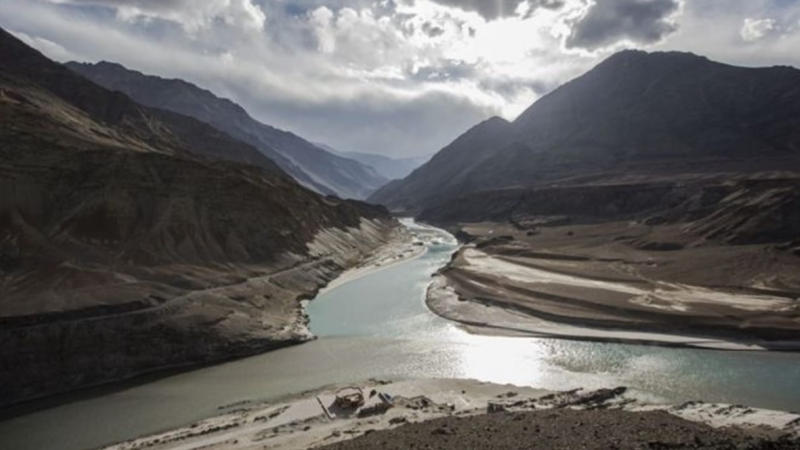Published 15:47 IST, September 18th 2024
Why India's Notice To Pakistan Over Indus Water Treaty Is Significant
According to the current water treaty, Pakistan gets 80% of the share of Indus water while leaving the rest 20% of water for use by India.

New Delhi: India has served a formal notice to Pakistan , seeking review and modification of the Indus Water Treaty. The notice was sent to Pakistan on August 30, 2024. Under Article XII (3) of the Treaty, its provisions may from time to time be modified by a duly ratified Treaty concluded for that purpose between the two Governments.
India's notification highlights fundamental and unforeseen changes in circumstances that require a reassessment of obligations under various articles of the treaty, the sources were quoted as saying by news agency PTI.
Cross-Border Terrorism Among Other Concerns
Among various concerns, the important ones include a change in population demographics, environmental issues and the need to accelerate the development of clean energy to meet India's emission targets, they said.
India has also cited the impact of persistent cross-border terrorism as one of the reasons for demanding the review.
"The notification was issued in the background of a separate prolonged controversy with respect to the Kishanganga and Ratle hydro projects," PTI quoted sources.
Pakistan Gets 80% Share of Indus Water As Per Current Provisions
The Indus Waters Treaty, signed on September 19, 1960, between India and Pakistan and facilitated by the World Bank, establishes a framework for cooperation and information sharing regarding the water resources of the Indus River and its five tributaries: Sutlej, Beas, Ravi, Jhelum, and Chenab. The treaty delineates how the waters from the six rivers of the Indus River System are to be allocated between the two countries. It grants Pakistan unrestricted use of the three western rivers—Indus, Chenab, and Jhelum—while India has unrestricted rights to the three eastern rivers—Ravi, Beas, and Sutlej. This allocation results in approximately 80% of the water being available to Pakistan and 20% to India.
"In this regard, the World Bank has simultaneously activated both the neutral-expert mechanism and the Court of Arbitration on the same set of issues," the source added.
"The Indian side has, therefore, also called for a reconsideration of the dispute-resolution mechanism under the treaty," the source said.
India has not cooperated with the Court of Arbitration process to resolve the dispute.
New Delhi considers that the start of the two concurrent processes to resolve the dispute violates the provision of the three-step graded mechanism prescribed in the IWT.
India has been pushing for the resolution of the dispute through neutral-expert proceedings.
With this notification, India has called on Pakistan to begin government-to-government negotiations in order to review the treaty under the provisions of Article XII(3), the sources said.
Updated 15:58 IST, September 18th 2024




